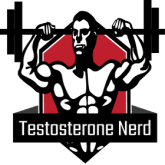As a journalist specialized in mental health and hormone-related topics, I’ve delved into the complex relationship between anxiety and testosterone levels. Low testosterone, a hormone vital for various bodily processes, can have a profound impact on mental well-being, leading to symptoms of anxiety and depression.
Studies have shown that both high and low testosterone levels can influence mood, with low levels often resulting in feelings of anxiety, depression, and fatigue. Additionally, low testosterone levels may affect serotonin levels, further contributing to mood enhancement and reduced depression.
While the exact link between low testosterone and anxiety is not fully understood, research suggests that replacing testosterone in individuals with low levels may alleviate stress, fear, and overall anxiety. Therefore, seeking medical advice is crucial to determine the best treatment plan, which may include testosterone replacement therapy if low testosterone is causing or worsening anxiety symptoms.
Key Takeaways:
- Anxiety symptoms can be tied to low testosterone levels in men.
- Low testosterone can contribute to decreased sex drive, weight gain, and mood swings, which may worsen anxiety.
- Replacing testosterone in individuals with low levels may alleviate stress and anxiety.
- Other treatment options for anxiety, such as medications and therapy, should be considered if low testosterone is not the underlying cause.
- Consulting with a healthcare provider is essential to determine the most suitable course of treatment for anxiety and low testosterone.
Connection Between Testosterone and Anxiety
Multiple studies have demonstrated a strong connection between testosterone levels and anxiety. While the exact mechanism is not fully understood, it is believed that testosterone plays a crucial role in regulating mood and anxiety levels. Men, who naturally have higher testosterone levels than women, tend to experience lower rates of anxiety and depression. However, men with low testosterone, also known as hypogonadism, are more susceptible to anxiety and depression. As testosterone levels naturally decline with age, the risk of low testosterone and subsequent anxiety increases.
Hormones, including testosterone, have a significant influence on mood, and imbalances can lead to symptoms of anxiety. Low testosterone levels can cause various symptoms that contribute to increased anxiety levels, including fatigue, mood changes, sleep problems, and low sex drive. Additionally, low testosterone may affect other hormones in the body, such as cortisol, dopamine, and serotonin, which are all implicated in anxiety.
It is essential to recognize the common symptoms of anxiety, such as racing thoughts, difficulty concentrating, irritability, restlessness, and gastrointestinal problems. These symptoms can overlap with those of low testosterone, making it crucial to consult with a healthcare provider to assess testosterone levels and explore potential treatment options.

Treatment Options for Anxiety and Low Testosterone
If you are experiencing anxiety symptoms that are associated with low testosterone levels, there are treatment options available to help alleviate your symptoms and improve your overall well-being.
One viable treatment option is testosterone replacement therapy (TRT). This therapy works by replenishing your testosterone levels, which in turn can alleviate anxiety symptoms. TRT can be administered through various methods, including patches, injections, topical gel, or pellet implants.
It is important to consult with a healthcare provider to determine the most suitable treatment plan for you. They will consider factors such as your medical history, hormone levels, and individual needs. Working with a healthcare professional ensures that you receive the appropriate dosage and delivery method for your specific situation.
However, it’s important to note that testosterone therapy may not be effective if your anxiety or depression is not caused by low testosterone levels. In such cases, alternative treatments such as medications and therapy should be considered. Seek professional medical advice to accurately diagnose the underlying causes of your anxiety and low testosterone and develop a comprehensive treatment plan that addresses both your mental and hormonal health.
I've been fascinated by natural male hormone optimization since 2016. And ever since I've been going through boatloads of different meta-analyses and scientific data associated with increasing testosterone levels naturally. I hold a PhD degree in public health and have 10+ scientific publications on Google Scholar. Thus, in my collective work here you'll find helpful tricks, natural remedies, detailed product reviews (including stuff I've personally tried)... and more!


